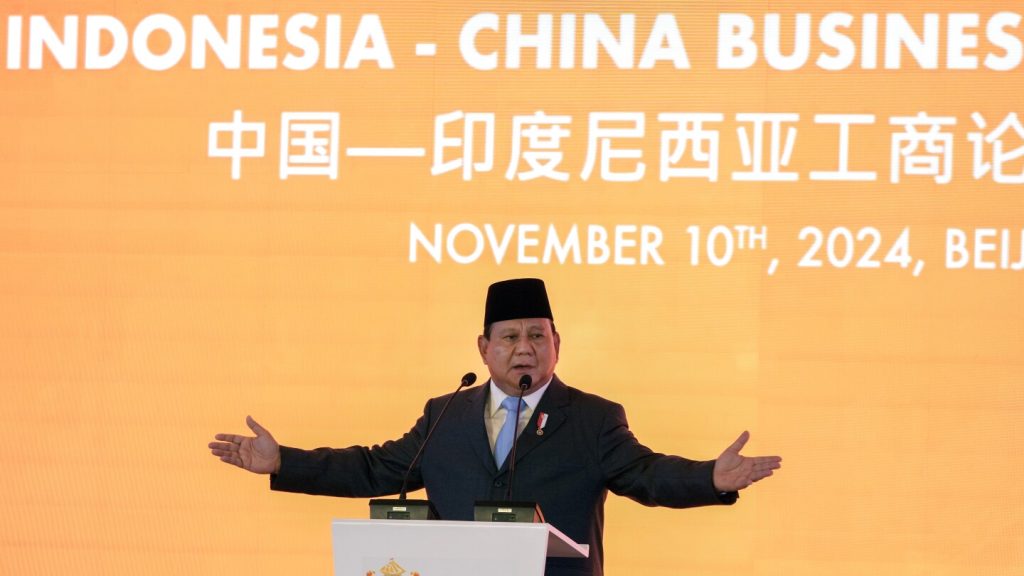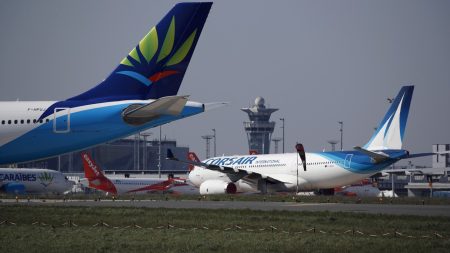Indonesian President Prabowo Subianto emphasized the importance of collaboration rather than confrontation with China during his visit to Beijing, where $10 billion worth of new deals were signed at a business forum. Subianto expressed his desire for Indonesia to be a part of China’s emergence as not just an economic power, but also a “civilizational power.” He emphasized the need for collaboration for peace and prosperity in the modern age. This marked his first overseas trip since taking office three weeks ago, with plans to visit the U.S., Peru, and Brazil for various summits.
During his visit, Subianto and Chinese President Xi Jinping agreed to deepen ties between their countries and elevate security to a fifth pillar of cooperation in addition to political, economic, maritime, and people-to-people exchange. They also agreed to hold a joint meeting of their foreign and defense ministers in 2025. Subianto emphasized Indonesia’s stance of nonalignment and respect for all great powers in the world. Despite being on the periphery of the territorial disputes in the South China Sea, Indonesia has had minor confrontations with China, such as driving away a Chinese coast guard vessel from an Indonesian energy company vessel conducting a seismic survey.
Chinese companies have made significant investments in Indonesia, particularly in the mining sector. They have also played a role in the construction of Indonesia’s first high-speed railway connecting Jakarta and Bandung. However, the influx of low-priced Chinese products has had a negative impact on Indonesia’s garment makers, leading to factory closures and calls for import tariffs. The Indonesian government has been working to balance the interests of domestic producers with those of its largest trading partner, China, in order to maintain a harmonious relationship.
Subianto’s visit to China comes at a time when tensions between the U.S. and China are escalating. The U.S. government has been increasingly vocal about its concerns regarding China’s rise as a global power and has taken steps to counteract it. By choosing to emphasize collaboration with China, Subianto is positioning Indonesia as a neutral player in the power dynamics between these two global giants. This approach aligns with Indonesia’s history of nonalignment and could potentially help the country navigate the complex geopolitical landscape in the region.
As Subianto prepares to travel to Washington, where the U.S. government is taking a more confrontational stance towards China, his emphasis on collaboration and diplomacy with both countries highlights Indonesia’s strategic positioning. By engaging with both the U.S. and China, and by actively seeking to deepen ties with both countries, Indonesia is signaling its commitment to maintaining positive relationships with all major powers. This approach could be crucial in ensuring Indonesia’s continued economic growth and stability amidst the shifting dynamics of global geopolitics. Subianto’s diplomatic efforts in China and his upcoming visit to the U.S. and other countries demonstrate Indonesia’s proactive approach to international relations and its commitment to promoting peace and prosperity in the region.















